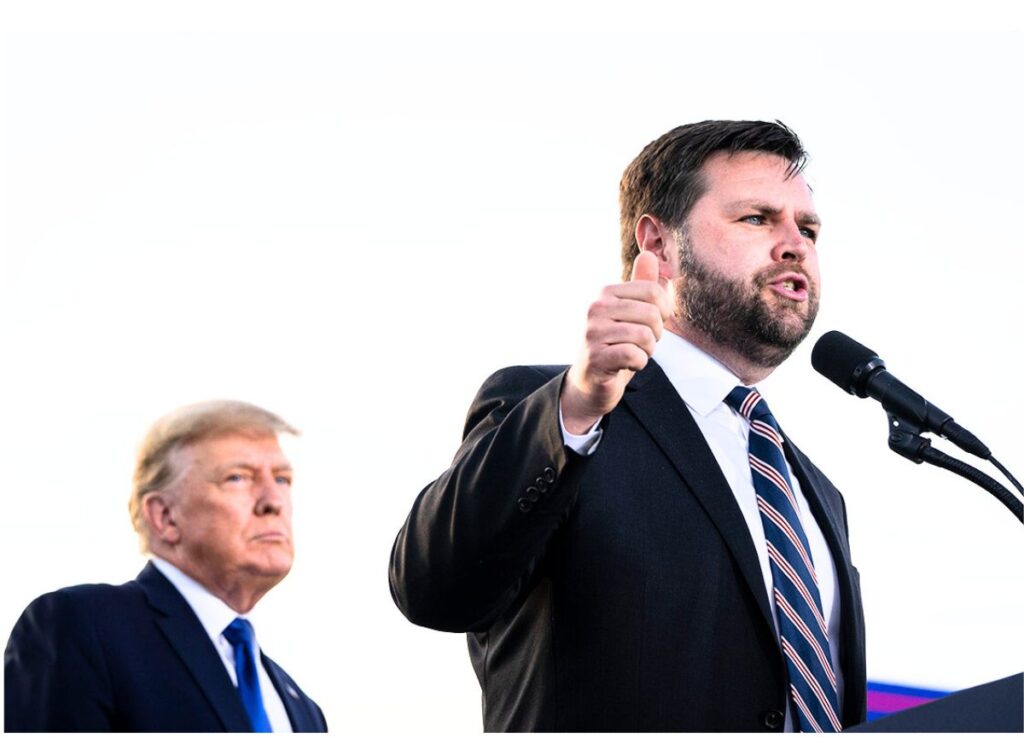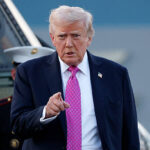
Ohio Senator J.D. Vance has come under scrutiny for his vocal opposition to U.S. support for Ukraine amidst its conflict with Russia. This opposition has sparked debate, particularly given Vance’s perceived alignment with former President Donald Trump’s views, which critics argue are favorable to Russian President Vladimir Putin.
Table of Contents
Vance's Public Criticism and Actions
In 2023, Vance took to prominent platforms such as the New York Times and the Senate floor, and even traveled to Munich, to criticize American policy toward Ukraine. He has consistently voted against aid packages for Ukraine and has called for immediate negotiations to end the conflict. Critics argue that Vance’s proposed policies could inadvertently embolden Putin to further expand Russian territories and undermine neighboring democracies.
Expert Opinions
Bill Browder, an investor turned human rights activist, has been a prominent critic of Vance. Browder, who has been targeted by Putin for his efforts to pass sanctions against Russian human rights abusers, asserts that Vance’s policies are detrimental to American and global interests concerning Russia and Ukraine. Browder questions whether Vance is naive or intentionally sinister, given that his stance seems to favor Putin’s agenda..(J.D. Vance)
Vance's Perspective
Vance’s office did not respond to detailed inquiries for this story. However, Vance has publicly downplayed Putin’s threat, arguing that there are more pressing global issues, particularly in East Asia. In a February statement, Vance acknowledged Putin’s negative actions but maintained that the U.S. should prioritize other regions over Europe.
Understanding Putin's Goals
To comprehend Putin’s ambitions, Tetiana Hranchak, a Ukrainian researcher at Syracuse University, explains that Putin aspires to resurrect a Eurasian empire and avenge Russia’s perceived humiliations following the Cold War. Putin’s goals are rooted in power, greatness, and revenge, aiming to subjugate other nations under Russian control..
Vance’s Munich Speech

During an international security conference in Munich, Vance condemned Putin for the suspicious death of Russian opposition leader Alexei Navalny. Despite this, Vance has remained steadfast in his belief that U.S. aid to Ukraine is futile. He argues that Ukraine’s resistance will not alter the battlefield’s reality, and he criticizes European nations for not contributing enough to their own defense.
NATO and U.S. Support
Vance echoes Trump’s criticism of NATO allies for allegedly not paying their fair share. Trump has previously threatened to withdraw from NATO, a prospect that would likely please Putin, given Russia’s opposition to NATO’s expansion. However, the argument that European allies are not contributing enough is contested. Data from the Kiel Institute for the World Economy shows that on a per-capita basis, the U.S. is the 16th most generous in supporting Ukraine. Moreover, Germany has pledged to meet the NATO target of spending 2% of its GDP on defense..(J.D. Vance)
Strategic Calculations
In his criticism of continued U.S. support for Ukraine, Vance argues that Ukraine lacks the manpower and matériel to reclaim its 1991 borders, and that the U.S. cannot provide the necessary resources. However, experts like Charles A. Kupchan, a professor of international affairs at Georgetown University, disagree. Kupchan believes that U.S. support is crucial in weakening Russia’s military capabilities and that ending aid would only embolden Putin..
Future Implications
Kupchan emphasizes the importance of demonstrating long-term commitment to Ukraine to deter Putin. He suggests that while Ukraine may eventually need to make territorial concessions, steadfast support will convince Putin of the West’s resolve. Conversely, Browder warns that abandoning Ukraine could lead to greater conflicts, potentially involving NATO countries like Estonia, Latvia, Lithuania, and Poland.
Comparing Historical Contexts
Vance draws parallels between current support for Ukraine and the U.S. invasion of Iraq in 2003. He argues that both situations involve misleading justifications for war. However, this comparison overlooks significant differences: the Bush administration’s unfounded claims about weapons of mass destruction in Iraq versus Ukraine’s legitimate plea for assistance against an aggressor.(J.D. Vance)
Conclusion
Vance’s stance on Ukraine has sparked significant debate, with critics arguing that it aligns too closely with Putin’s interests. As Vance seeks to position himself as a potential vice-presidential candidate, his views on U.S. foreign policy toward Ukraine will likely remain a contentious issue. Critics fear that abandoning support for Ukraine could embolden Russia and lead to broader conflicts, while Vance insists that U.S. resources should be redirected to other global priorities.







